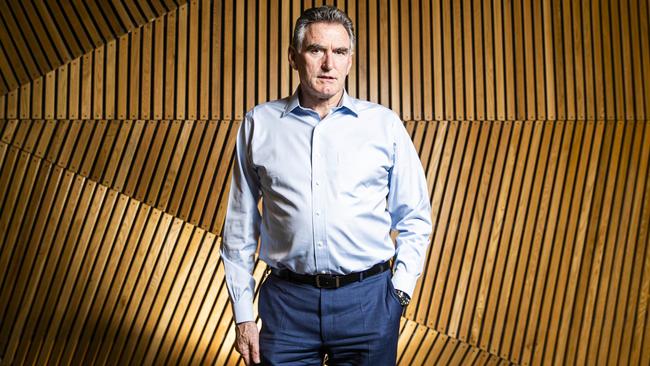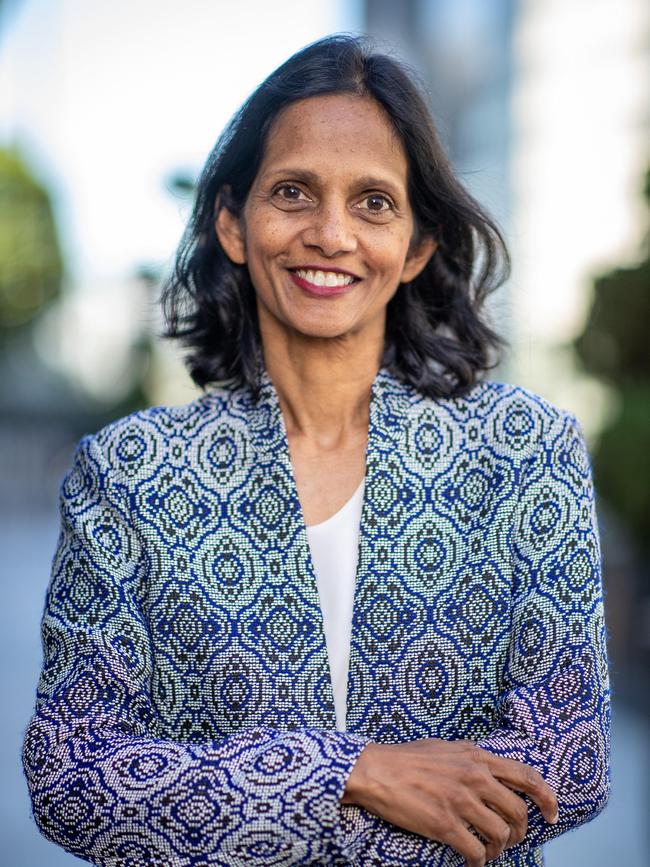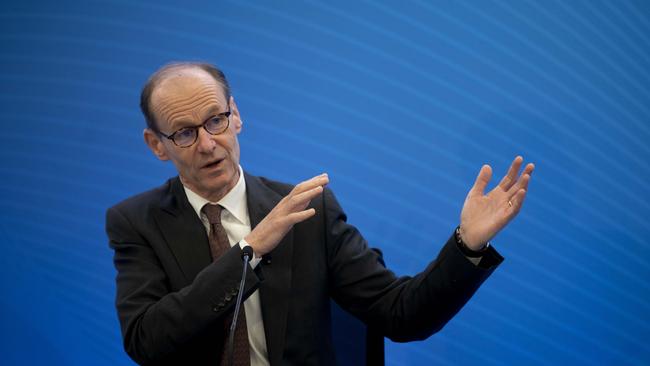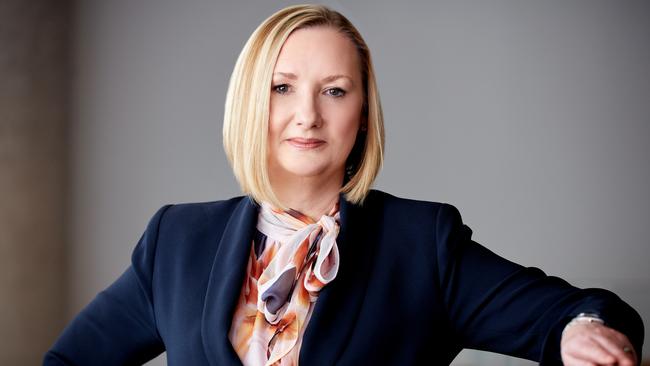
In no particular order, climate change, wages, inflation, immigration and sustainable growth form part of the list of challenges for the economy. Strengthening supply chains and making sure infrastructure could withstand increasing disasters, including floods and fire, are also priorities.
But top chief executives who have been out meeting investors over the past week universally point to Australia emerging from two years of the pandemic in a better economic position than many other countries, even though inflationary pressures are building faster than expected.
National Australia Bank chief Ross McEwan says Australia is well placed, with both agribusiness and mineral commodities delivering support. However he cautions that the lack of migration across skilled and temporary workers is threatening to undermine this growth.
International students were also critical for service areas including cafes and restaurants, while the wave of infrastructure projects under way at a federal and state level needed skilled labour.
“Let’s re-establish Australia as an amazing place to come and work. That will help us continuing to see the economy grow,” McEwan says.
He was speaking as the Reserve Bank on Friday upgraded its forecasts for inflation, saying while it remains lower than in many other advanced economies, it “has picked up faster and to a higher level” than previously expected. The central bank is tipping inflation could hit 5.9 per cent in the 2022 calendar year, where previously it had forecast inflation to reach 3.25 per cent over the same period.

Macquarie Group chief executive Shemara Wikramanayake says she is looking at opportunities over risks. And here Australia can play a big role in the transition of energy globally to more renewable sources.
“We’re really well set up for a number of very good new industries and hydrogen potentially is one of them,” Wikramanayake tells The Australian.
“We have very low-cost solar and renewable energy and that’s a lot of the cost of producing hydrogen. That’s an area where we could be at the forefront.”
Macquarie’s Green Investment Group, which has more than $40bn in committed funding on renewable energy projects, is pushing deeper into hydrogen with a joint venture with Dutch-based chemicals maker Nobian. Wikramanayake also nominated emerging technology and the ability for Australia to further export its global expertise in infrastructure investment as opportunities to diversify the economy.
ANZ’s Shayne Elliott says there is significant opportunity around sustainability but first there needs to be “policy certainty” in order for banks and those with pools of capital to have the confidence to invest more.

“I understand it’s hard and the politics of energy transformation are enormously difficult, I get that,” he said.
“But what’s interesting, when we talk to our investors, there’s been a real maturity of thinking.
“A couple of years ago, it was all about the downsides, the conversation was around exiting coal or oil.
“Now, it’s a much more balanced view, which is in order to transition the economy, which is the right thing to do, banks have to play a really important role.
“But in order to do that, towards that net zero, it needs an enormous amount of financing – all those hydrogen plants and lithium mines, and electrification of vehicles, and all that needs a lot of money behind it.
“In order to get that money allocated to do all that work banks and the providers of capital need greater certainty about the regulatory future.
“For us that’s what we would like to see. As Australia’s biggest institutional bank, (we are) the most likely to actually really fund a lot of that transition.
So we’re looking for greater certainty because as you know, funding a hydrogen plant, it’s not a one year investment. It going to be there for many, many years.”
Like NAB’s McEwan, Mirvac chief executive Susan Lloyd Hurwitz also points to the urgent return of migration to help sustain growth.
“It’s absolutely crystal clear (immigration) has always been a driver of the Australian economy. We need skilled migrants.
“You can see it in the labour shortages that we are all experiencing across different markets.
“We just don’t have enough people in key parts of the market.
“We need skilled migration to resume,” she told investors at the Macquarie conference in Sydney.

Wesfarmers boss Rob Scott, also speaking at the conference, says businesses is still grappling with higher costs across the board, particularly as supply chains remain squeezed because of Covid disruptions. He also points to wage inflation in specialist areas including engineering, commercial and technology roles.
With farm and mining workers in short supply, regional areas are also facing real wage inflation pressure, he says.
However, for a retailer such as Wesfarmers, which operates hardware chain Bunnings and discount department stores including Kmart, real wage growth, which includes the impact of inflation, is a benefit.
“Real wage growth is good for the economy. And if it is good for the economy then it’s good for Wesfarmers,” he told the recent Macquarie Australia investment conference.
Over time there is an opportunity for real wage growth.
He also points out that the Australian consumer is in relatively good shape, with low unemployment. So we are starting from a strong base.
Scott says that Wesfarmers, through its recent acquisition of pharmacy distributer API, which owns the Priceline chain, is looking at ways of bringing more efficient and cost-effective health services to the community. This is “going to be critical to balancing the federal budget over the decade ahead”, Scott says.
johnstone@theaustralian.com.au





Australia’s most senior business leaders are looking beyond this month’s federal election, and having coming through Covid, are clear on the host of issues facing Australia.